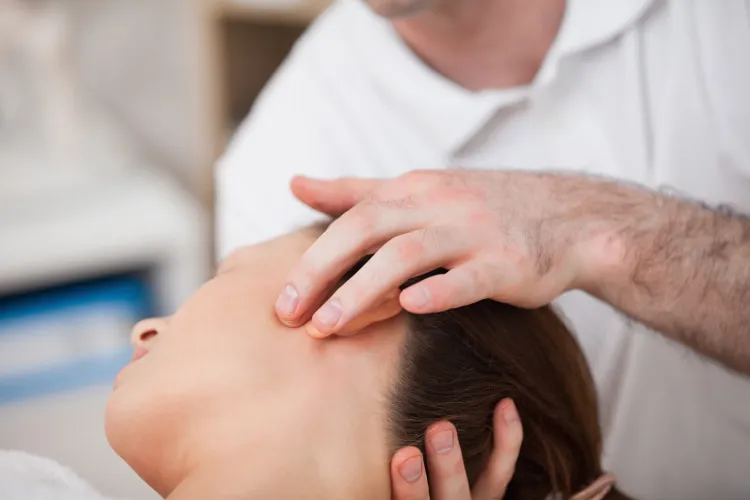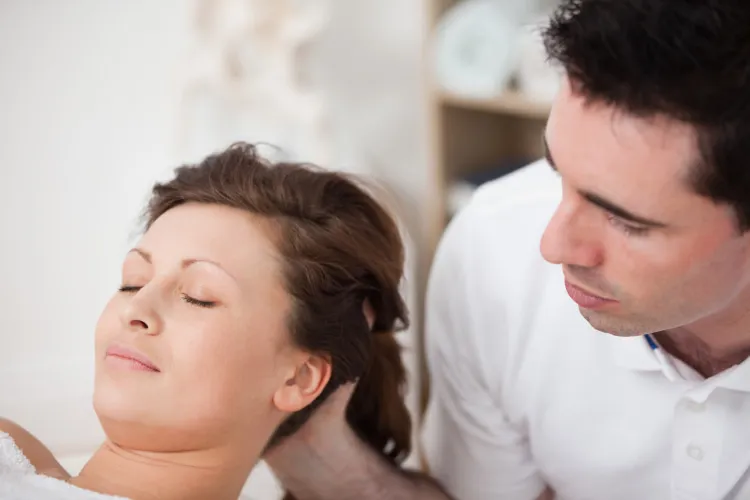They are a growing concern in healthcare, especially in sports and personal injury. Such treatments can vary in severity. Even mild concussions can lead to a wide range of manifestations. They include headaches, dizziness, cognitive impairment, and emotional disturbances. In recent years, the role of chiropractic and concussions has garnered significant attention. Sawbones aims to provide non-invasive and holistic solutions for concussion patients. This approach can include spinal adjustments and soft tissue techniques. Also, the rehabilitation exercises aim to promote healing, reduce symptoms, and enhance well-being.
This exploration of such care and its potential role in the treatment of concussions delves into the science and methods. Also, real-world experiences offer insight into this emerging area of healthcare. Knowing all the particularities of chiropractic care for concussions is essential for individuals. It is especially important for athletes and healthcare professionals. This article includes all the necessary information to seek comprehensive approaches to recovery.
Definition and causes of concussions
This mild traumatic brain injury is a neurologic disturbance. It results from a blow, bump, or jolt to the head, leading to an alteration in cerebrum function. Concussions can occur due to various causes, including:
- Sports Injuries: Athletes, especially football and soccer, are susceptible to concussions.
- Accidents: Car accidents, falls, or workplace incidents can result in head injuries.
- Assaults: Physical altercations or violent encounters can cause head trauma and shakes.
- Blast Injuries: Military personnel are at risk of concussions from exposure to explosions.
- Shaken Baby Syndrome: Infants can suffer concussions from violent shaking or impact.
The primary cause of a concussion is the rapid acceleration and deceleration of the head. It can lead to the brain moving within the skull and causing injury. These manifestations may include headache, dizziness, and confusion. Also, a range of cognitive and emotional disturbances. Diagnosis and proper chiropractic care for concussion are essential to ensure a full and safe recovery.
Role of Chiropractic Care in Concussions
Such care can play a supportive role in the management of shakes. Particularly in addressing associated musculoskeletal issues and promoting well-being during the recovery process. Experts in the musculoskeletal and nervous system function can offer several benefits:
- Symptom Management: Chiropractic adjustments and soft tissue techniques may help ease manifestations. For example, headaches, neck pain, and dizziness.
- Balance and Coordination: Such care can improve balance and coordination. They are often compromised after a head injury.
- Neck and Spinal Health: Evaluating and addressing neck and spinal misalignments can aid in reducing tension.
- Rehabilitation: Chiropractors may provide rehabilitation exercises and advice. They help to restore strength and function to the injured area.
- Holistic Approach: Specialists often emphasize health and well-being.
It’s crucial to note that chiropractic care for concussions should be part of a comprehensive treatment plan. Also, not a standalone solution. Collaborative care with medical professionals, including neurologists and physical therapists. It ensures the most effective and safe management of concussions. Individualized assessment and treatment plans are essential to cater to each patient’s.

Chiropractic Techniques for Concussion Recovery
Such techniques for chiropractic and concussion aim to address musculoskeletal issues. They improve nervous system function and promote well-being. Some of the key techniques used by chiropractors in this context include:
- Chiropractic Adjustments: These manipulations of the spine and neck aim to correct misalignments. That can contribute to signs such as headaches and dizziness.
- Soft Tissue Therapy: Techniques like myofascial release and massage can reduce muscle tension. Also, they improve circulation, which can aid in relieving pain and promoting healing.
- Cervical Spine Care: The cervical spine is a focus in concussion recovery, as neck problems are common post-injury.
- Balance and Coordination Exercises: Specialists often incorporate exercises that help improve balance.
- Nutritional Guidance: A holistic approach may include advice on nutrition and lifestyle factors. They support the body’s natural healing processes.
People seeking chiropractic care for concussion recovery need to receive a thorough evaluation. Also, a treatment plan is needed to ensure safety and effectiveness in coordination with other specialists.
Chiropractic adjustments
Such spinal manipulations are the hallmark of such a way of care. They involve skilled and controlled manual movements applied to the spine or other joints in the body. They aim to improve musculoskeletal and nervous system function. The fundamental principles of chiropractic care for post-concussion syndrome are the one belief. Misalignments in the spine can interfere with the body’s natural healing abilities. Also, leads to various health issues.
Improve Alignment
Such adjustments are instrumental in improving alignment within the spine and other joints. By applying targeted, controlled forces, chiropractors seek to correct misalignments. Also, subluxations, which can lead to pain and dysfunction. Proper alignment of the spine enhances joint mobility. It reduces pressure on nerves and fosters the body’s natural ability to heal. This can result in pain relief, improved range of motion, and well-being. Chiropractic care for concussions focuses on optimizing alignment. This aim is to promote musculoskeletal and nervous system health.
Relieve Pain
Chiropractic methods can relieve pain, particularly in the musculoskeletal system. By correcting misalignments in the spine and joints, these adjustments can reduce pressure on nerves. Also, it reduces muscle tension and improves function. This can lead to a significant reduction in pain. Especially in conditions like lower back pain, neck pain, and headaches. Many patients seek chiropractic care for post-concussion syndrome for pain relief. It offers a non-invasive, drug-free approach that addresses the underlying causes of pain.
Enhance Nervous System Function
Special adjustments can enhance nervous system function. It is possible by correcting misalignments in the spine and joints. Also, it reduces interference with the body’s communication network. The nervous system, consisting of the brain and spinal cord, controls and coordinates all functions. When subluxations are present, they can impede the flow of nerve signals. It leads to pain, dysfunction, and a range of health issues. Chiropractors assert that by restoring proper alignment and movement. After nerve pathways are free from obstruction, this allows the nervous system to function as normal. Many individuals report improvements in conditions related to nervous system dysfunction. Such as headaches, sciatica, and neuropathies, following chiropractic care for concussion.
Promote Self-Healing
The basis of such care lies in the belief that the body has an innate ability to heal itself. This is possible with its optimal functioning. Chiropractors after concussions aim to remove interference in the nervous system. They do it by correcting spinal misalignments or subluxations. It allows the body’s innate healing mechanisms to operate more effectively. Proper spine alignment supports communication between the brain and the rest of the body. This enhances its body’s natural healing responses. Chiropractic care and concussions focus on the holistic concept of health and wellness. Also, it emphasizes the importance of the body’s ability to self-regulate and self-repair. Such adjustments can play a valuable role in promoting self-healing. Also, it improves well-being in individuals with various musculoskeletal and neurological conditions.

Can a Chiropractor Help with Post-Concussion Syndrome?
A chiropractor can help with post-concussion syndrome. These specialists may play a supportive role in the management of PCS. Also, it’s crucial to understand their role within a multidisciplinary approach. PCS is a complex condition that can cause persistent manifestations. Chiropractors can address certain aspects of PCS through the following:
- Neck and Spinal Health: Many PCS patients experience neck discomfort. Also, chiropractors can assess and treat spinal misalignments and muscle tension. That may exacerbate these manifestations.
- Balance and Coordination: Chiropractic care for post-concussion syndrome may include exercises. They improve balance and coordination. Also, proprioception addresses some PCS-related issues.
- Headache Management: Chiropractic adjustments and soft tissue therapies can ease headaches. Which are common PCS symptoms.
- Manifestations Relief: Some patients report relief from certain PCS signs after chiropractic treatment. Although the results can vary.
It’s essential to note that PCS management should be a collaborative effort. It involves neurologists, physical therapists, and other healthcare providers.
Conclusion
The role of chiropractic care for concussion management is a complex and evolving one. Specialists may contribute to the treatment approach for certain aspects of concussion recovery. It is vital to recognize the need for a multidisciplinary strategy in dealing with these traumatic brain injuries. Chiropractic care focuses on musculoskeletal health and nervous system function. It offers potential benefits in addressing signs. Such as headaches, neck pain, and balance issues associated with shakes. Its application should always be in the context of a comprehensive health plan. This must be done by medical professionals. Among them should be neurologists and physiotherapists.
Safety, careful assessment, and individualized treatment plan are of utmost importance. This is especially important when using chiropractic care techniques for concussion recovery. Our understanding of concussions and their treatment continues to grow. Collaborative efforts across healthcare disciplines will provide the most effective and comprehensive solutions. There are concerns for those dealing with the effects of these brain injuries. You need to take preventive measures and seek proper medical help.
FAQ
How can chiropractic care aid in concussion recovery?
Chiropractic care can aid in concussion recovery. It provides by addressing musculoskeletal issues and relieving symptoms. For example, headaches and neck pain. It also promotes well-being, but its role is necessary to consider as part of a multidisciplinary approach.
Is chiropractic care safe for post-concussion syndrome?
Such care for post-concussion syndrome can be safe. A qualified chiropractor with a collaborative, multidisciplinary approach should do it. It must be carefully tailored to the individual’s specific condition. Also, close communication with other healthcare providers is essential. This way is possible to ensure safety and effectiveness.
How often should one see a chiropractor after a concussion?
The frequency of chiropractic visits after a concussion is on a case-by-case basis. With the healthcare provider and chiropractor collaborating. This way is possible to establish an individualized treatment plan based on the patient’s specific needs and progress.


Related posts
Today is an era dominated by digital conveniences and desk-bound occupations. So, the effects of a sedentary lifestyle have emerged as a pervasive concern.
Our guide aims to equip people with the knowledge to understand the intricacies of internal injuries. They are arising as a result of car accidents. Join us on this informative trip.
Beyond merely treating injuries, chiropractors work to enhance the body's biomechanics. It allows sportsmen to move more potently and reduces the risk of future injuries.